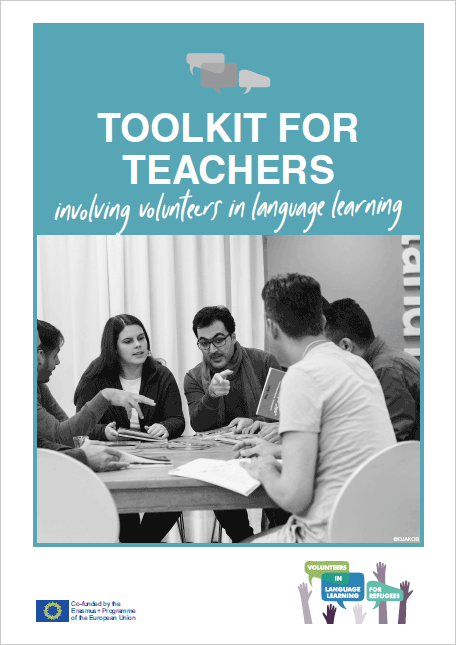Opportunities & Difficulties

Why work with volunteers in the first place? What benefits can they bring? Volunteers can augment and support the language teaching we’re able to provide as paid teachers. They can act as an extra listening ear, giving more students more talking time, support and attention. They may be able to help with practical support, when you just need a spare pair of hands, like setting out chairs or collecting photocopies. Where mixed level groups are unavoidable, volunteers can help the teacher make the lesson accessible to a wider range of students.
Language learning groups of any kind also have many benefits beyond just language learning – they’re an opportunity for people to make connections and exchange knowledge and experience. Conversations may arise about how the school system works, or how to access medical care, for example. Volunteers may have knowledge and skills to share in these kind of exchanges. They are likely to have lived in the country for some time themselves and be able to support with navigating bureaucracy, accessing services or answering questions about how things work.
The class will also, hopefully, act as a supportive community where people enjoy their time together. Volunteers can add to this sense of community as a warm, welcoming presence. They may have things that they have in common with students - perhaps they live in the same area, speak some of the same languages or come from the same cultural or religious background. The teacher may be able to facilitate activities in class which reveal other shared interests, hobbies or experiences. These connections between learners and those in a teaching or supportive role help build the community in the class.
Do you want to learn more about the Opportunities and Difficulties?
"It is our first job to make the students feel noticed in the classroom, and with help from the volunteers it is easier to consider every student and give them a feeling of being paid attention to."
Teacher, Austria

